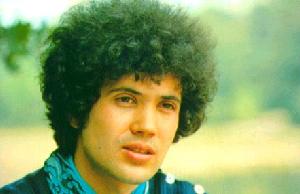
Lucio Battisti was an Italian singer-songwriter and composer. He is widely recognized for songs that defined the late 1960s and 1970s era of Italian songwriting.
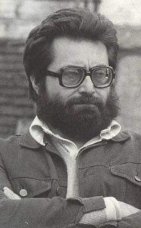
Gian Piero Reverberi is an Italian pianist, composer, arranger, conductor, and entrepreneur.

Tutti morimmo a stento is the second album and the third studio release by Fabrizio De André, issued in 1968 by Bluebell Records. The album, whose lyrics are inspired by the poetry of François Villon, is considered one of the first concept albums to be produced in Italy.
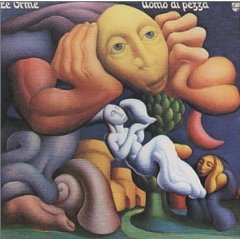
Uomo di pezza is an album by the Italian progressive rock band Le Orme. It was released in 1972 and was one of their best selling works, which won an Italian award disco d'oro.
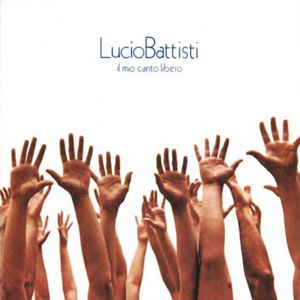
Il mio canto libero is an album by the Italian singer-songwriter Lucio Battisti. It was released in November 1972 by Numero Uno.
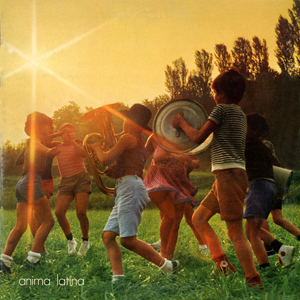
Anima latina is an album by the Italian singer-songwriter Lucio Battisti. It was released in December 1974 by Numero Uno. The album was arranged and produced by the lyricist Mogol and Battisti in its entirety, with performances by various semi-unknown musicians. It is considered one of Battisti's masterpieces for signaling a significant departure from his previous records. Anima latina was Italy's eighth best-selling album of 1975.

Una giornata uggiosa is an album by the Italian singer and songwriter Lucio Battisti. It was released in January 1980 by Numero Uno.

Amore e non amore is a concept album by the Italian singer and songwriter Lucio Battisti. It was released in July 1971 by Dischi Ricordi.
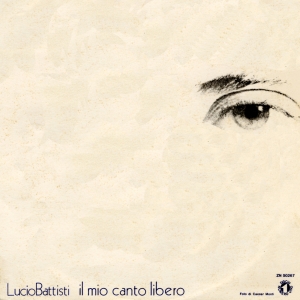
"Il mio canto libero" is a song written by Italian singer-songwriter Lucio Battisti and lyricist Mogol. The song was recorded by Battisti for the album of the same title, and released as a single in November 1972 for Mogol's recording label Numero Uno. The song was a commercial success in Italy, topping the Musica e dischi singles chart for nine consecutive weeks in 1973 and becoming the third best-selling single of the year. During the following years, it was covered by several artists, and it became a classic of Italian popular music. It was certified platinum by the Federation of the Italian Music Industry in 2021, for domestic equivalent sales exceeding 70,000 units since 2009.

Lucio Battisti Vol. 2 is the second album by the Italian singer-songwriter Lucio Battisti. It was released in July 1970 by Dischi Ricordi.
"E penso a te" is a song composed in 1970 by Lucio Battisti based on the lyrics by Mogol. Initially sung by Bruno Lauzi, it was subsequently re-recorded by numerous other artists. The most popular version remains the one which its author gave in 1972.

Mazzini canta Battisti is a compilation album by Mina, released in 1994 by PDU.
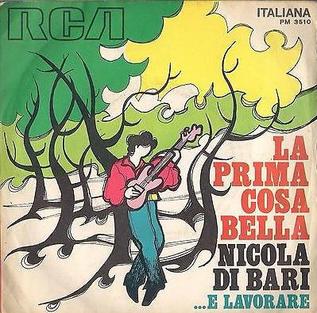
"La prima cosa bella" is a song composed by Nicola Di Bari and Mogol. The song ranked second at the twenth edition of the Sanremo Music Festival, with a double performance by Nicola Di Bari and Ricchi e Poveri.

"Pensieri e parole" is a 1971 song composed by Lucio Battisti (music) and Mogol (lyrics), arranged by Gian Piero Reverberi and performed by Lucio Battisti.

Il pescatore ["The fisherman"] is a song by Fabrizio De André, with lyrics by himself and music by composers Gian Piero Reverberi and Franco Zauli. Backed with "Marcia nuziale", De André's translation of by Georges Brassens's 1957 song "La marche nuptiale", it was released in 1970 by the Italian branch of Liberty Records as a standalone single, De André's first of only two such releases in his career. It was the first single of De André to enter the Italian singles chart, peaking at the 13th position. Its popularity was significantly boosted by a 1979 live remake, with PFM backing De André in a new rock arrangement.
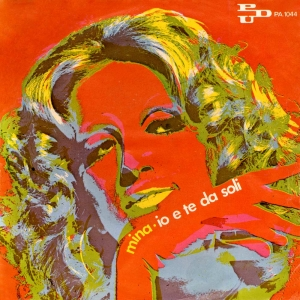
"Io e te da soli" is a song by Italian singer Mina. The song was written by Mogol and Lucio Battisti.

"Emozioni " is a 1970 song composed by Lucio Battisti (music) and Mogol (lyrics), arranged by Gian Piero Reverberi and performed by Lucio Battisti.
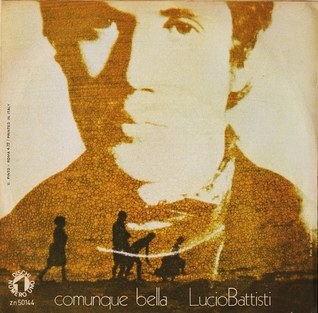
"I giardini di marzo" is a 1972 song composed by Lucio Battisti (music) and Mogol (lyrics), arranged by Gian Piero Reverberi and performed by Lucio Battisti.
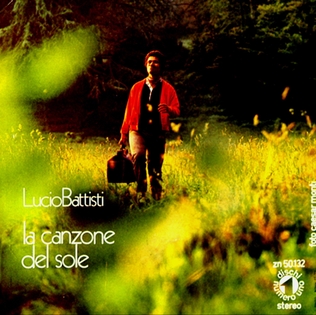
"La canzone del sole" is a 1971 song composed by Lucio Battisti (music) and Mogol (lyrics), arranged by Gian Piero Reverberi and performed by Lucio Battisti.

"La collina dei ciliegi" is a 1973 song composed by Lucio Battisti (music) and Mogol (lyrics), arranged by Gian Piero Reverberi and performed by Lucio Battisti.




















